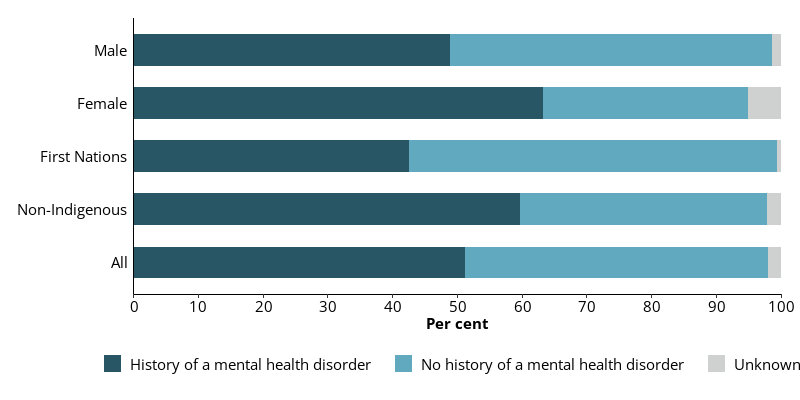Mental health condition
Prison entrants reporting a mental health or behavioural condition
During the data collection period, prison entrants were asked if they:
- had ever been told they had a mental health or behavioural condition (including drug and alcohol abuse) by a doctor, psychiatrist, psychologist or nurse
- were currently taking medication for a mental health condition, including those relating to alcohol and other drug use.
More than a half (51%) of prison entrants reported being told they had a mental health condition at some stage in their lives (Indicator 1.4.1).
Female prison entrants (63%) were more likely than male prison entrants (49%) to report a mental health condition at some stage in their lives (Figure 5.1).
Non-Indigenous prison entrants (60%) were more likely to report a mental health condition than First Nations prison entrants (42%) (Figure 5.1).
Figure 5.1: Prison entrants who had ever been told they had a mental health condition, by sex and Indigenous identity, 2022

Notes
- Proportions are representative of this data collection only, and not the entire prison population.
- Excludes Victoria, which did not provide data for this item.
Source: Entrants form, 2022 NPHDC.
Prison entrants aged 25–34 were most likely to report a mental health condition (54%) at some stage of their lives, and those aged 18–24 were least likely (34%).
For information on medications dispensed in prison for mental health conditions see Medications.


